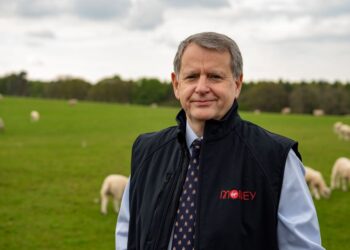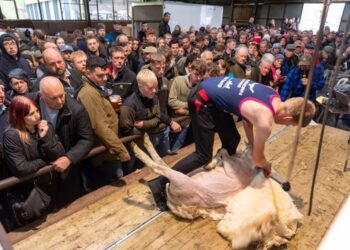
The Stainton-based Lakes Free Range Egg Company (The Lakes) was presented with two awards at the British Free Range Egg Producers Association (BFREPA) annual awards ceremony.
The first was in recognition of their environmental sustainability record and the second in the breakthrough category for their innovative BirdBox communication software.
The Environmental Sustainability Award is presented to producers who are outstanding in the field. Today, most free range egg producers plant trees on their hen ranges, but it was David and Helen Brass, of The Lakes, who pioneered this 25 years ago. They set a standard which was later adopted by the producers who supply The Lakes and helped set the standard for the whole industry.
Many of the trees and shrubs planted by The Lakes and its producers are now maturing, absorbing carbon, reducing shed ammonia emissions and becoming part of their circular environmental economy, with tree thinnings used to fuel biomass boilers.
One of the latest innovations introduced to the business comes as a result of millions of pounds invested in data technology to improve sustainability, enhance efficiency and boost hen welfare. This impressed the judges, who announced The Lakes as the winners of the Breakthrough of the Year Award.
The system, named BirdBox, is the only one of its kind in the world. David and the team at The Lakes honed their idea over a number of years and developed the practical farm system in conjunction with FAI Research Institute.
David Brass said: “We always keep pushing forward with environmental benefits for our hens and our landscape. Right now is an exciting time because we are seeing the real benefits of decades of planting — it’s delivering a cleaner environment and biodiversity on our farms.
“We were very surprised to win two awards at the same event. The Breakthrough of the Year Award comes after many years developing a system that can monitor numerous data variables, from feed, water and temperature levels to alerting producers to any changes in the flocks very early on.
“We are already at a stage where we can take the research to another level, looking at how we can interpret and develop the data to better understand bird calls. We will have more exciting news on that in the new year.”































